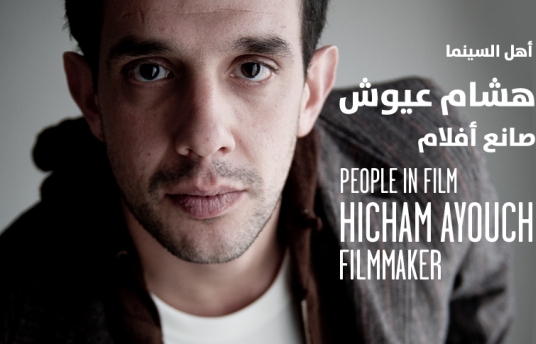People in Film: Hicham Ayouch
Jul 19, 2011

Hicham Ayouch is a Moroccan filmmaker that was born in Paris in 1976. A former journalist, he worked with several French channels before becoming a writer/director. His first two features were documentaries: ‘The King’s Queens’, about the status of the women in Morocco; and ‘Angel’s Dust’, about autistic teenagers. He has also directed two shorts: ‘Bombllywood’, and ‘As They Say’. His first fiction feature, ‘Heart Edges’, which is about a dead fishing village, was recently followed up with ‘Cracks’, a love triangle between three misfits in Tangiers. He is currently in the development stage of two fiction features: ‘Samba Do Maazouz’, a satirical tale set in Morocco, and ‘Fevers’.
DFI: Congratulations on your DFI grant. Can you tell us more about this new project?
Hicham: Thank you! The temporary title of the film is ‘Fevers’; it’s a feature that takes place in the suburbs of France about a young, violent kid who lives in a social project after being abandoned by his mother. This is where he learns that he does have a father!
DFI: You are also developing another fiction feature, called ‘Samba Do Maazouz’. What does the title mean, and what is the film about?
Hicham: Maazouz is the name of the main character, so it is ‘Samba of Maazouz’. It is about a Moroccan guy living in a poor city and who is bored with his life. His only consolation is dreaming about Brazil, so he teaches Samba in the neighbourhood, and is fond of a Brazilian soap opera protagonist.
DFI: You worked as a journalist before becoming a director/writer. What led you to this transfer?
Hicham: To be honest with you, I was fed up being part of a big circus called news information, so I decided to create my own circus, so to speak, and be the clown myself. I am a clown that creates his own manipulations, instead of the opposite. Honestly, it’s much more beautiful.
DFI: What are the main challenges you have faced in your career?
Hicham: Every piece of work I do is a constant challenge. It’s challenging because I never know what the work is going to be like – if it’s going to be a good work of art or not. I just do it and take this risk. But there are no particular hardships I can think of.
DFI: What themes attract you the most? You’ve already directed documentaries about women in Morocco and autistic children. Do you feel inclined towards similar topics?
Hicham: I do not consider myself a humanitarian at all, if that is what you’re hinting at. I do stories that appeal to me, about the underprivileged. I do stories about losers and dreamers because I consider myself a disappointment and a constant dreamer. I do stories about people who resemble me in their weaknesses.
DFI: Your film, ‘Cracks’, generated a lot of mixed reactions. Some even called it a rebel film. It has no script, a small budget and no dialogue. What are your thoughts on this, and can you tell us more about this experiment?
Hicham: You said it all already, and that’s exactly what the film is. Although I do not call it a rebel film, it’s just a film. If people want to call it that then that’s fine, but for me it was an interesting project, and a sort of experiment. Or should I say, a crazy experiment with one of the most creative moments I ever had in my life! I do not know if I’ll ever get the chance to have this freedom of trying new things later on in my career.
I consider this film to be a very fragile baby with a handicap. But I love it the way it is. We filmed the whole feature in just 12 days, and it was more like a human experience because each one of us had a piece of ourselves in this picture. It was difficult for the actors to improvise without a scenario, and if I had to look back I wouldn’t change a thing about the process. In different future projects, however, I’d make my characters more defined in my pre-production to make it easier on the actors. You can’t ask all actors to improvise all the time when they don’t know what the characters represent.
DFI: Do you have a certain style in your storytelling process that you frequently adopt in your films?
Hicham: I do not follow any specific style at all. Every film is very different from the other. I try to discover and learn new things with every project. You see, I haven’t been to film school, so making a film is like going to film school. I try to experiment instead and learn with the process. In ‘Cracks’ I didn’t follow any genre – the only common thing in all my work is trying to induce and show a lot of emotions.
DFI: What is your favourite film and why?
Hicham: I do not have a favourite film, I have many! I’ll mention some, like ‘The Arrangement’ by Elia Kazan; ‘Opening Night’ by John Cassavetes; and ‘Leaving Las Vegas’ by Mike Figgis.
DFI: What is your message to young filmmakers?
Hicham: Eat caramel popcorn at the mountains!